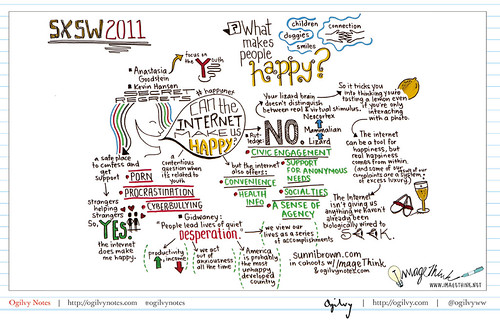Does the Internet make people happier?
.People with internet access are more satisfied with their lives:
As people are spending more time online, it is important to evaluate the impact of Internet use on individual well-being. Internet use yields direct utility and economic returns (e.g. better job, higher productivity) that may increase life satisfaction. But the Internet might also have detrimental effects (addiction, social isolation, e.g.). This paper empirically examines the relation between Internet use and subjective well-being. Using Luxemburgish data from a European social survey, we find evidence that non users are less satisfied in their life than Internet users. This result holds when we control for socio-demographic characteristics, social capital, values and beliefs, and health and income. Moreover, the positive influence of Internet use is stronger for low income and young individuals. These findings suggest that public policy aiming to reduce the digital divide are socially desirable.
Source: “Does the Internet make people happier?” from CEPS/INSTEAD Working Paper Series with number 2011-41.
Join 25K+ readers. Get a free weekly update via email here.
Related posts:
At what annual salary does money stop making us happier?





